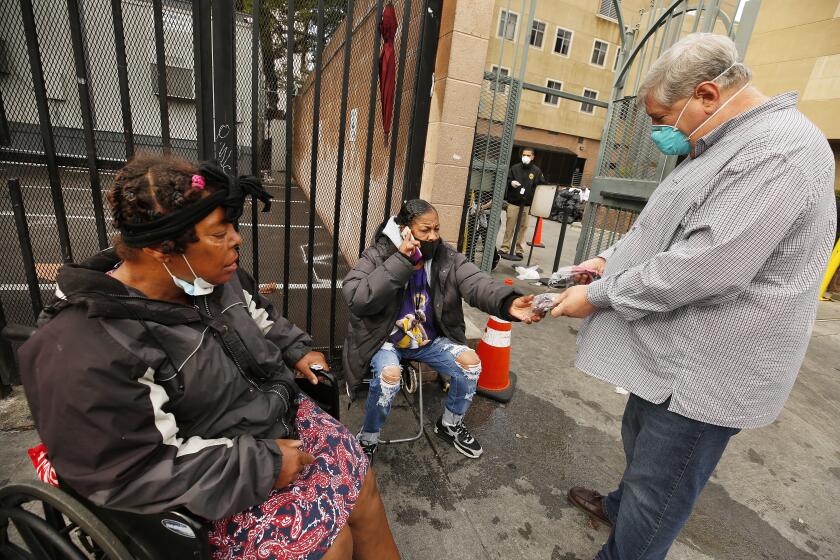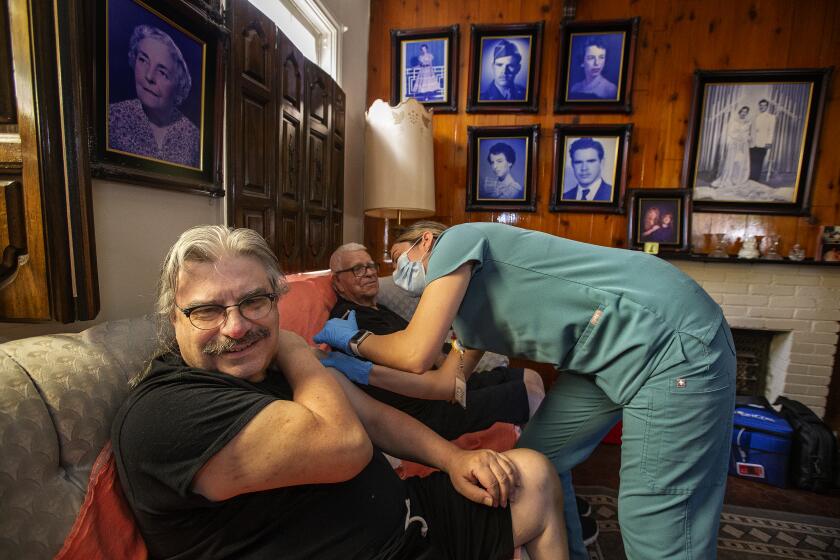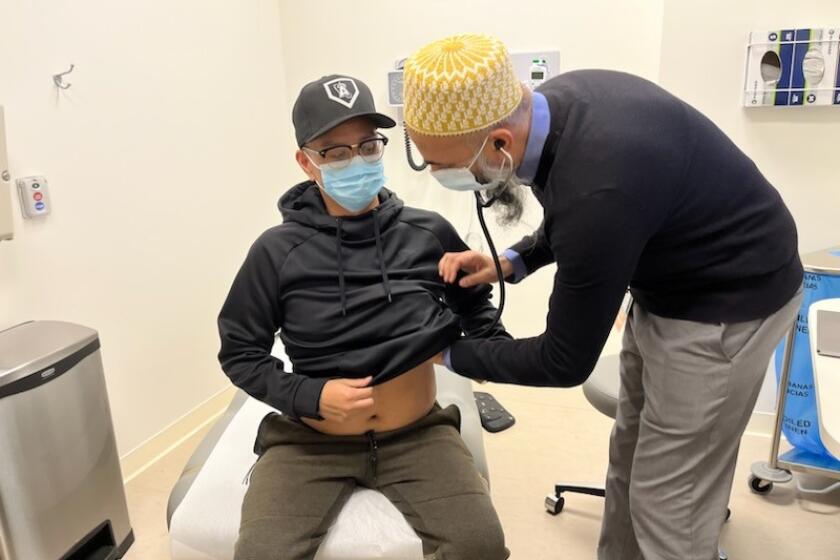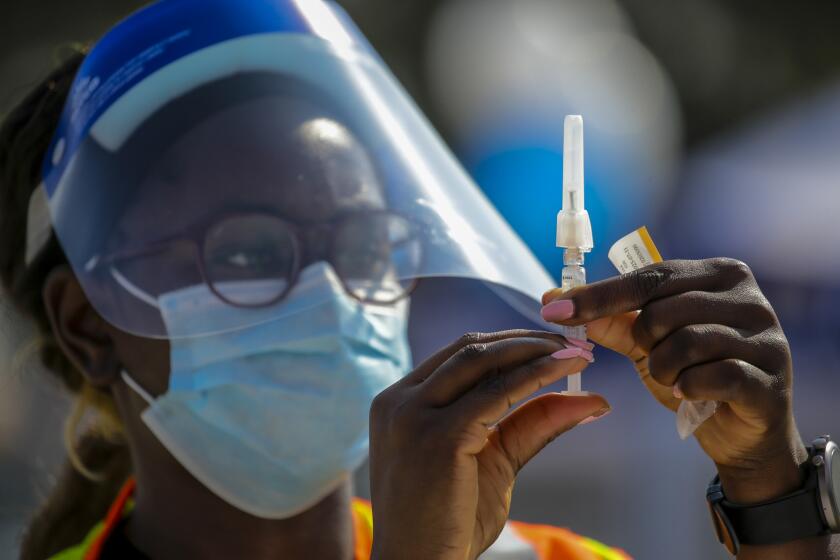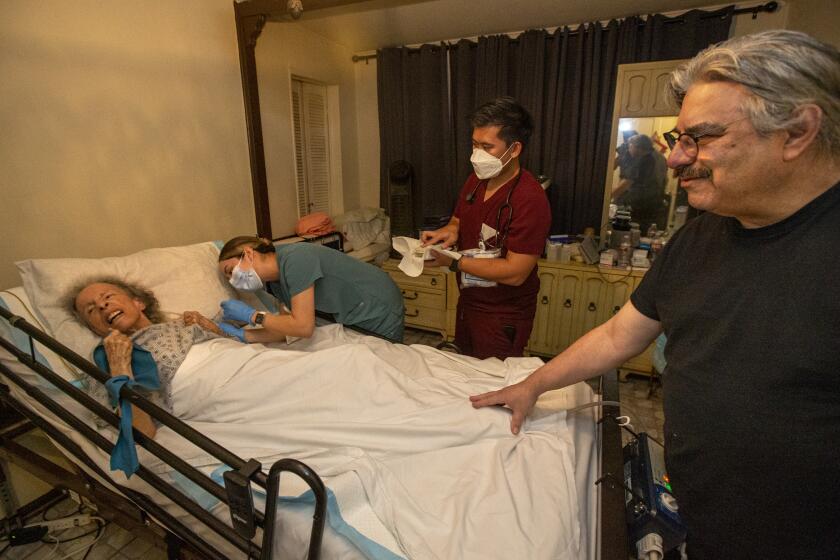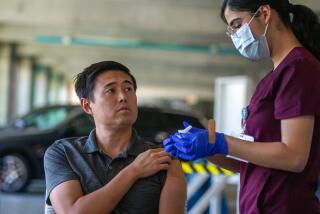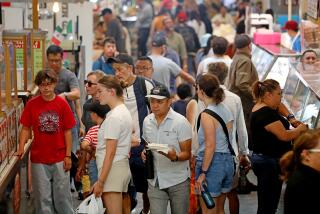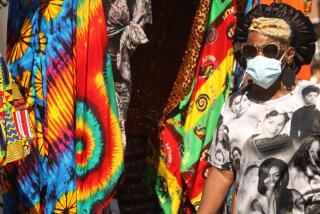How close is L.A. County to a new COVID-19 mask mandate? Here is what we know
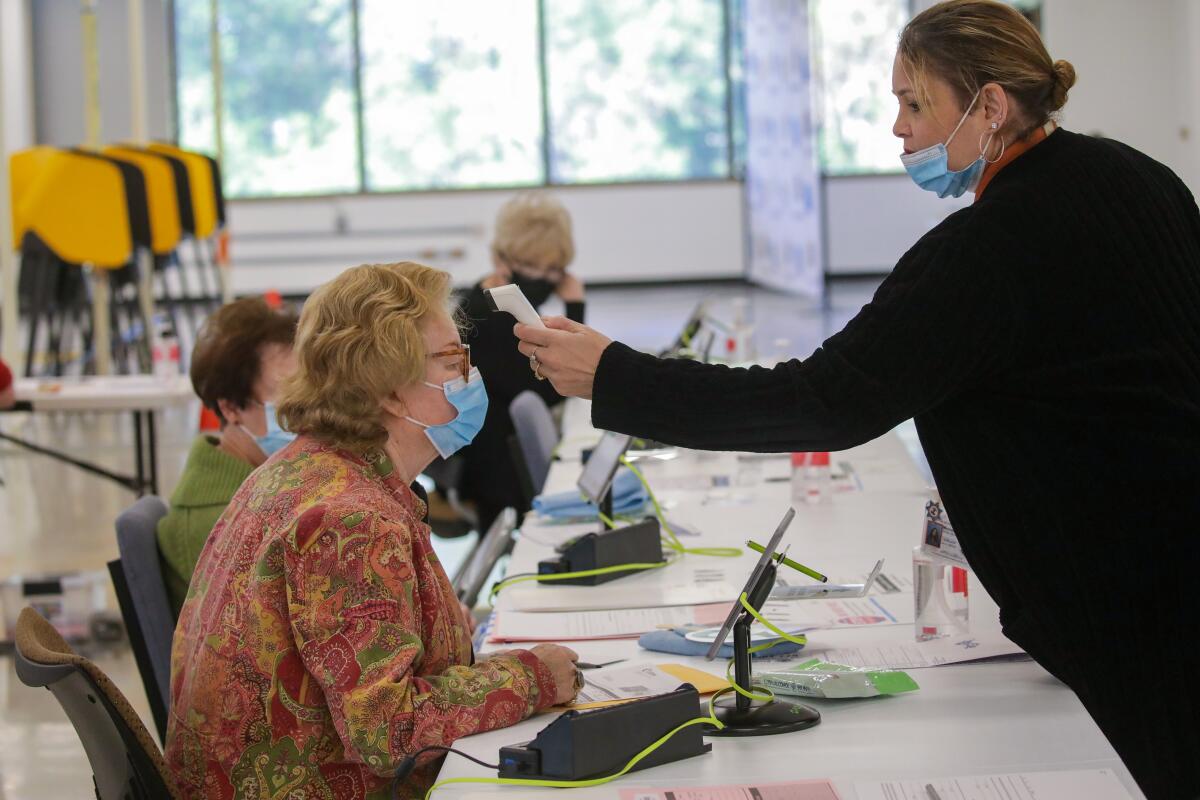
In what has now become a pattern during the pandemic, coronavirus cases are rising as we enter the holiday season in L.A. County.
It is still far from clear how big a potential winter surge could be. Some officials are optimistic the wave will not be as bad as past seasons.
But officials warn that continued spikes in COVID-19 could bring a return to an indoor mask mandate.
Here’s what we know:
New hospitalizations have tripled in the last month. A new mask order is possible in the coming weeks if hospitalization metrics worsen.
What are the COVID numbers in L.A.?
CASES: L.A. County’s coronavirus case rate has been increasing since late October and is now triple what it was in the autumn low. For the week that ended Thursday, L.A. County was recording 2,710 cases a day — or 188 cases a week for every 100,000 residents. A case rate of 100 or more is considered high. The autumn low was a weekly rate of 60, set on Oct. 21.
HOSPITALIZATIONS: According to the U.S. Centers for Disease Control and Prevention, there were 1,196 new admissions of coronavirus-positive patients for the week that ended Tuesday — triple the rate from the beginning of November. That’s 11.9 new weekly hospitalizations for every 100,000 residents. A rate exceeding 10 is enough to send L.A. County to the medium COVID-19 community level.
DEATHS: The COVID-19 death rate remains stable in L.A. County, at around 60 per week. But if cases continue to rise, so too will deaths, eventually.
A confluence of respiratory illnesses has some California officials warning of a possible triple threat that could strain healthcare systems.
What would it take to force a new indoor mask mandate?
Should hospital measures worsen, L.A. County could be on track for the return of a mandatory mask mandate in indoor public settings.
To get there, the case rate would need to top 200 a week for every 100,000 residents. L.A. County could hit that threshold next week.
But before a mask mandate were triggered, the percentage of hospital beds used by coronavirus-positive patients also would need to exceed 10%, a level reached only during the two prior COVID-19 winter surges, the deadliest of the pandemic. The current figure is 5.6%, which is up from around 2% at the start of November.
When everyone around them stops taking pandemic precautions, it gets harder for immunocompromised Americans to protect themselves against COVID.
What would the timing of a mask mandate look like?
It would take several more weeks of increasing numbers to reach the trigger point based on current trends. It remains uncertain whether that will happen.
Los Angeles County Public Health Director Barbara Ferrer said she doesn’t expect L.A. County to hit the increased hospitalization rate anytime soon. “I don’t think it’ll be there next week. I’d be very surprised,” Ferrer said. “It would mean that hospitalizations are really going up very, very quickly, much more quickly than we usually see.”
If L.A. County does reach all the benchmarks to trigger a new mask order, officials could decide to implement the rule a couple of weeks later, Ferrer said.
Looking for an easy way to reduce your risk of catching a viral illness? Try to stop touching your face.
What happened last summer, when COVID cases rose?
Over the summer, L.A. County reached the threshold to initiate a new mask order in response to rising cases and hospitalizations, triggering a countdown for the order to go into effect two weeks later, in late July. But that order never went into place, as case and hospitalization rates dipped just in time.
“We’ll have to look at the rate of increase and what we’re seeing in terms of that to decide what that time frame would be,” Ferrer said. “And then, as we’ve done in the past, as soon as we see the numbers that show us that transmission has lowered and that concerns at our hospitals are lower … we’d go ahead and lift” the mask order.
There’s guarded optimism that this winter might be different from those of 2020 and 2021, when COVID-19 surges killed thousands of Americans a day.
What do experts say about the winter COVID-19 forecast?
The rising cases have brought concern and calls for people to take precautions.
But there is also some optimism.
Some of the advantages this year compared to past seasons is an updated COVID-19 booster shot that’s pretty well matched to the circulating strains of the coronavirus, ample supplies of at-home rapid tests and general awareness of steps that can be taken to avoid illness, including masking up in indoor public settings, staying home when sick and improving air flow by taking events outdoors, opening windows and turning up air filtration units.
There’s even some promising news about the unrelenting emergence of new coronavirus subvariants, none of which have dramatically raised alarm bells the way the original Omicron strain did when it stormed onto the world stage last Thanksgiving.
But COVID-19 has proved hard to predict.
More to Read
Sign up for Essential California
The most important California stories and recommendations in your inbox every morning.
You may occasionally receive promotional content from the Los Angeles Times.
